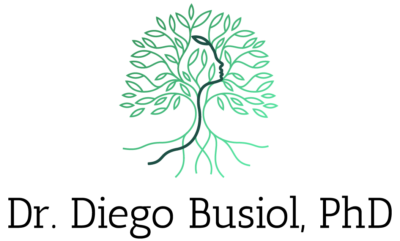Trapped in a Difficult Relationship with Food? Psychoanalytic Therapy for Eating Disorders Can Help
Do you feel your relationship with food is controlling your life? You're not alone. Eating disorders like anorexia, bulimia, binge eating, and even struggles with obesity often mask deeper emotional pain. While food may seem like the central problem, the true roots lie beneath the surface. Psychoanalytic therapy can help you uncover these hidden dynamics and find lasting freedom.
Beyond the Plate: Understanding the Visible Behaviors
Eating disorders manifest in various ways, often through noticeable behaviors related to food:
- Anorexia: Severe restriction of food intake, often leading to dangerous weight loss. This can include body image distortions, ritualistic behaviors around food and weight, and social isolation.
- Bulimia Nervosa: A cycle of binge eating followed by compensatory behaviors like vomiting, laxative misuse, or excessive exercise. These actions are often attempts to manage anxiety related to separation, autonomy, and seemingly insatiable desires.
- Binge Eating Disorder: Episodes of uncontrollable overeating, often followed by feelings of shame and guilt. Bingeing can be triggered by difficult emotions like anger, frustration, sadness, and depression.
- Obesity: While not always classified as an eating disorder, obesity can involve emotional eating and a complex relationship with food, often used to fill an inner void.
The Hidden Story: Uncovering the Invisible Dynamics
Psychoanalysis goes beyond the surface to explore the unconscious motivations driving these behaviors. It recognizes that eating disorders are not simply about food; they are often complex responses to difficult life experiences and relationships. Our earliest experiences with food are intertwined with our earliest relationships, shaping how we relate to nourishment and our bodies.
- Anorexia: Often seen as a desperate attempt to gain control and autonomy, especially when feeling overwhelmed or unheard. Rejecting food can be a way of saying, "I exist. See me." It can also represent an attempt to sever the connection between "giving" and "loving," expressing a need for love that goes beyond material needs.
- Bulimia: Can represent a struggle with conflicting desires – a yearning for connection alongside a fear of intimacy. The binge-purge cycle can be an attempt to regulate overwhelming emotions and maintain a sense of control over the body, even while experiencing a loss of control during binges.
- Binge Eating: A way of coping with difficult feelings like sadness, anger, or loneliness. Food can become a temporary source of comfort in the face of emotional pain. It can also be an expression of repressed aggression turned inwards.
- Obesity: May reflect a deep-seated need for protection or a way of filling an inner void. Excess weight can serve as a symbolic barrier against a painful world. This pattern can originate in childhood, where material objects (toys, clothes, food) are used to meet a child's needs for attention and affection, rather than genuine connection.
Food, Love, and the "Other": Exploring the Roots of Your Struggle
Our relationship with food often mirrors our relationships with others. Difficulties with giving and receiving, expressing emotions, and setting boundaries can contribute to developing an eating disorder. Often, the issue isn't a lack of love but a distorted way of experiencing and expressing it. Psychoanalysis helps you understand these connections and how they impact your relationship with your body.

Finding Your Path to Freedom: How Psychoanalytic Therapy for Eating Disorders Works
Psychoanalytic therapy offers a safe and supportive space to explore the underlying causes of your eating disorder. Through this process, you can:
- Gain Insight and Self-Understanding: Explore your personal history and relationships to understand the unconscious motivations driving your behaviors and the connection between your inner world and your actions surrounding food.
- Heal Past Wounds: Process past experiences and traumas that contribute to your struggles. Learn to name and process the emotions connected to these experiences.
- Develop healthier ways to manage your emotions and relationships: Learn new skills for navigating difficult feelings, building stronger connections, and meeting your needs in healthy ways.
- Reclaim Your Body and Self-Acceptance: Develop a more positive and accepting relationship with yourself and your body.
Take the First Step: Contact Me Today For a Confidential Consultation
If you're ready to break free from the grip of an eating disorder, I'm here to help. Reach out today for a consultation. I look forward to hearing from you.
